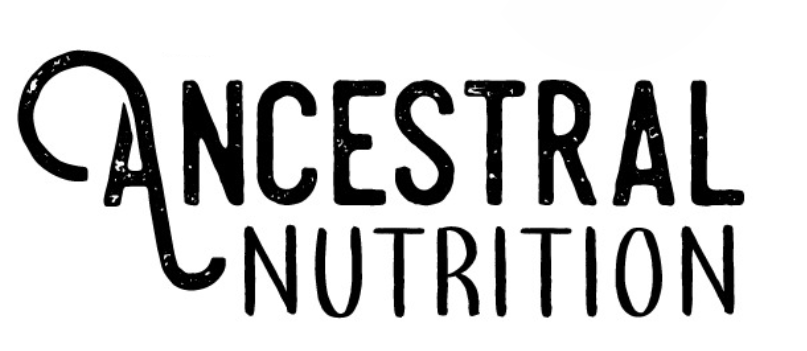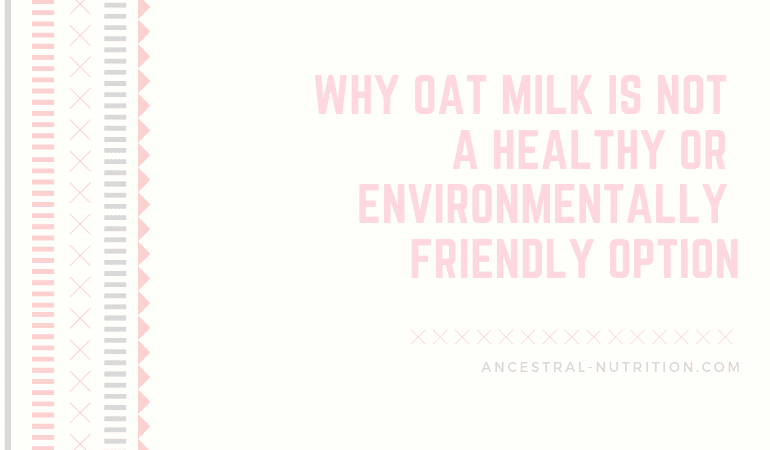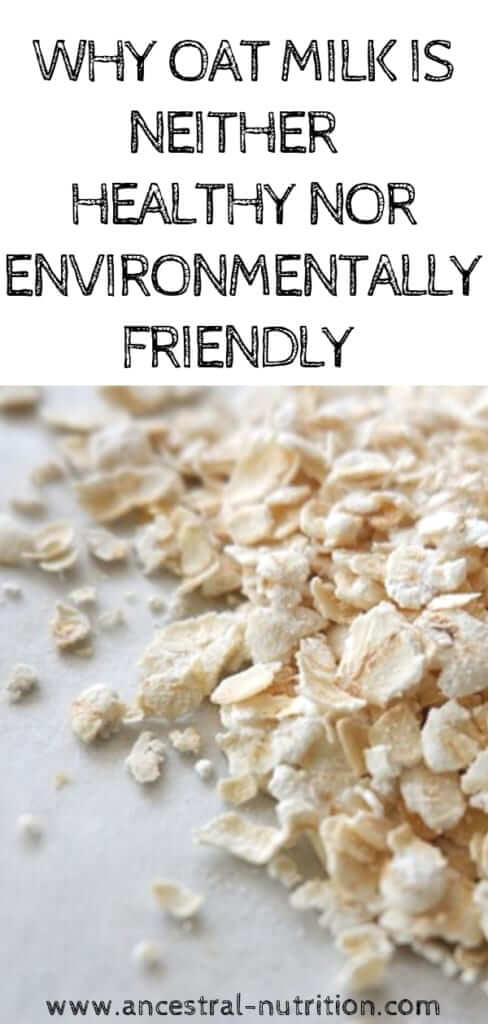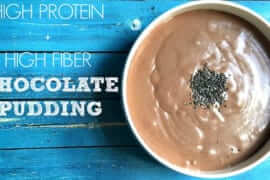I first heard about oat milk at a coffee shop near my house.
“It’s the most environmentally friendly milk.”
I was eavesdropping on the barista’s conversation with another patron. I wanted to interrupt and set the record straight, but then my toddler took off running and my chance to interject myself into a conversation I wasn’t invited to passed.
Then last month, as I was picking up my Califia Farms coconut milk, a woman stopped to ask me if I’d tried oat milk. She admitted she was recently diagnosed as lactose intolerant.
I’m going to tell you what I told her: I don’t recommend oat milk, from a health or environmental perspective.
Here’s why.
From a health perspective:
Oatly, the most popular brand of oat milk, doesn’t just contain good ol’ oats and milk. It also contains canola oil, preservatives and synthetic vitamins.
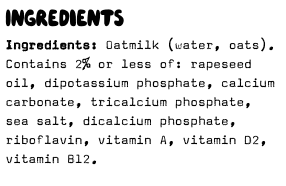
Canola oil, or rapeseed oil, is not a healthy oil.
Even though Oatly sources non-GMO canola oil that has not been extracted with hexane, which I can appreciate, this is still a highly processed industrialized oil.
Canola oil, which is derived from the rapeseed, undergoes an intcredible amount of processing including intense pressure, heat, bleaching and deodorizing. The polyunsaturated oils in canola oil are very delicate and this process causes rancidity.
Canola oil is not only rancid, it is high in omega-6 fatty acids, making inflammatory as well. We know that inflammation is a driver of many diseases including heart disease, cancer, Alzheimer’s, etc.
Read more about canola and the plethora of sources I use here.
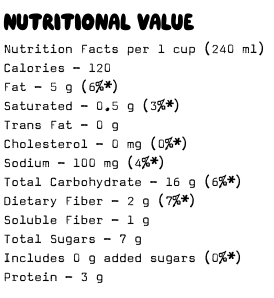
It’s high in sugar, carbohydrate and calories.
One cup of oat milk contains a whopping 16 grams of carbohydrate, 7 grams of sugar and 120 calories. Don’t get me wrong, I’m no calorie counter, but that is high. It’s higher than even my coconut milk (which for the record: 45 calories, 2 grams of carbohydrate, 1 gram of sugar).
Current oat production is no friend to the environment.
While Oatly and other brands try to source environmentally friendly oats, the fact is that oats in general are just not environmentally friendly. In fact, Oatly claims that their oats are glyphosate free. And while their supplier, Grain Millers, does try to keep their oats glyphosate free, they released this statement six months ago,
“According to the press release issued today, the non-profit Environmental Working Group (EWG), headquartered in Washington, D.C. has found glyphosate residues in several oat-based products. In light of this announcement, we feel it is important to share with you, our customers, our ongoing engagement in this area.”
Glyphsate has also been linked to cancer (read more about that here and here).
Oats destroy soil, and what destroys soil destroys the environment.
So many people, plant based advocates in particular, make the mistake of assuming that because something is grown without the use of animal products or production, that it’s environmentally friendly.
This reductionist thinking is going to get us into a huge mess. Let me break this down.
Oats require a tremendous amount of nitrogen. Oats require 97-117 lbs of nitrogen per acre. Canola requires 100-123 lbs. So we add synthetic nitrogen to the soil. What happens when synthetic nitrogen is added to the soil?
A few things:
Over time, the soil is completely depleted. Eventually, the soil is completely unable to be farmed. When people worry about food scarcity – this is what they should worry about. Not pasture based farms; they need to worry about the intense damage being done to the soil by industrial agriculture practices.
In fact, studies have shown that adding nitrogen to the soil not only ends up depleting the soil of nitrogen, but it impairs the ability of the soil to retain nitrogen. Over time, more and more nitrogen is needed, until the land is completely useless. And then, not only can food not be grown on this land – the land will not sequester carbon. Leading to excess green house gas emissions.
Interestingly, said study used manure on land and guess what? The soil not only retained nutrients but the nutrients increased. That’s because nature is smarter than we are. Animals nourish the land when grown correctly (ie: pasture based farming).
When cows are put to pasture, they nourish the soil. The manure imparts nutrients into the soil, often making once unusable land potentially farmable. This system also sequesters carbon and encourages plant growth. See? Oat milk ain’t fo environmentally friendly after all. Grass-fed, raw milk from your local farmer on the other hand…
Let us not forget how nitrogen fertilizer is made.
This production gets bigger every year. Supplies of nitrogen fertiliser, which is produced almost entirely from natural gas, are expected to grow nearly 4% per year over the next decade.5 And this production will increasingly rely on natural gas from fracked wells, which leak 40 to 60 percent more methane than conventional natural gas wells. (Methane is 25 times more potent than CO2 as a greenhouse gas.) Source
Furthermore, each year, soil erodes and is washed downstream via lakes and rivers, eventually making its way to the Gulf. When fertilizers, nitrogen in particular, are washed into local waterways – it destroys animal and plant life.
By the time all of this nitrogen reaches the Gulf, it has created an entire dead zone the size of Delaware. And that’s a good year. Let me reiterate that: the fertilizers required to grow crops like oats and canola have created a dead zone in the Gulf the size of Delaware. This dead zone kills animal and plant life alike.
This article provides numerous studies and a comprehensive overview of just how damaging synthetic nitrogen fertilizer is.
The good news.
There is evidence that practicing crop rotation with oats, ie: alternating soy, corn and oat crops can lessen the need for all of these harsh fertilizers and prevent soil erosion (source). But you, as the oat drinking public, need to demand this.
Write to the companies that sell oat milk, comment on their social media. Insist that they begin sourcing oats from farmers that absolutely do not use glyphosate. Encourage them to find and work with farms that intend to practice crop rotation.
Every time you buy food, you vote.
So vote wisely. Vote for your local farmer. Vote for organically grown, sustainable produce. Vote for grass-fed cows and wild seafood. Because this is what will make a difference. Not another plant based milk that puts an incredible demand on the earth, stripping it of nutrients.
The soil is a living organism. If we have unhealthy soil, we don’t have food. It doesn’t sequester carbon. Soil is the skin of the earth and it’s crucial that we start to take care of it. Oat products strips the soil and necessitates synthetic fertilizer. Grass-fed cows nourish the soil and impart a plethora of nutrients. You might just be better off finding a local farmer to purchase grass-fed milk.
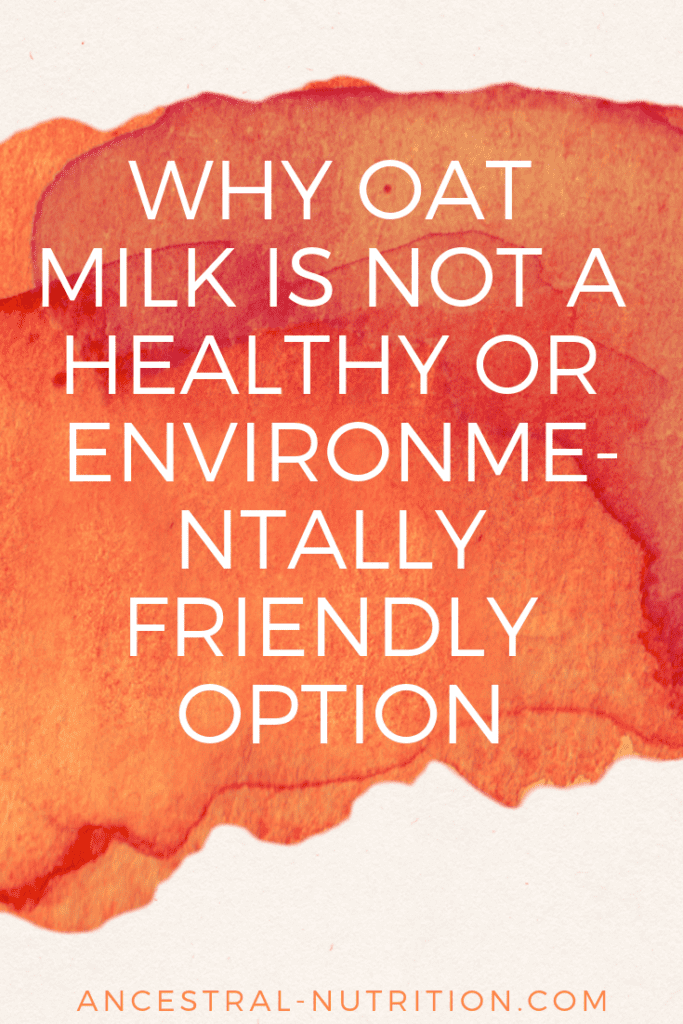
Sources:
https://poga.ca/grower-manual/fertility
https://poga.ca/grower-manual/fertility
https://www.canolawatch.org/2012/02/09/how-much-fertilizer-does-canola-need/
